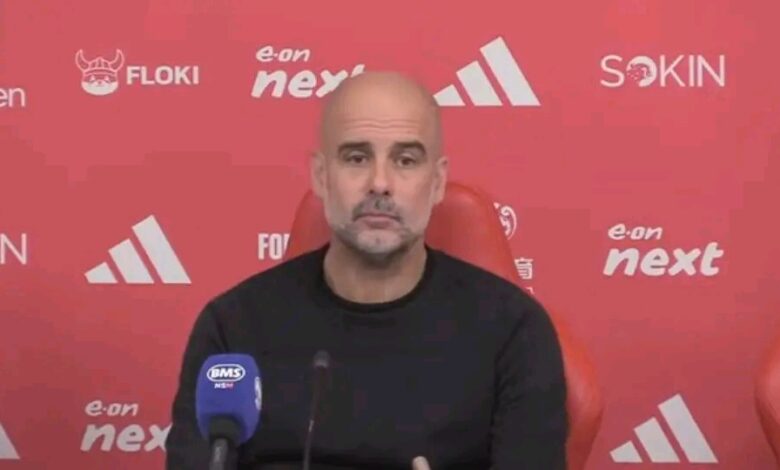Game over for Manchester City As Facing BAN alert from PGMOL after breaking Financial Fair Play(FFP) 115 charges which is threatening the future of the Premier League Giants!

The seemingly interminable saga surrounding Manchester City’s Financial Fair Play (FFP) case is finally nearing its denouement, with a verdict expected to be rendered imminently. This protracted affair, which has been unfolding for two years, has held football aficionados in a state of rapt anticipation, with many eagerly awaiting the outcome. While some pundits anticipate a mere slap on the wrist in the form of a fine, others are indulging in fantasies of more severe sanctions, including a transfer ban, points deduction, or even the draconian penalty of expulsion from the Premier League to the rarefied environs of League Two.
Should Manchester City be consigned to the latter fate, their vast financial resources would likely prove a bulwark against the challenges of their new surroundings, enabling them to dominate their League Two opponents with ease and swiftly plot a course for a return to the rarefied heights of the Premier League. This hypothetical scenario presents a fascinating thought experiment, offering a glimpse into a world where one of England’s preeminent clubs is forced to navigate the uncharted waters of the fourth tier.
In this fantastical scenario, Manchester City’s initial priority would be to rebuild their squad, which would likely be denuded of its top talents as players like Erling Haaland, Rodri, and Kevin De Bruyne decamp to more prestigious clubs. To address this void, Manchester City might consider adopting a novel recruitment approach, one that prioritizes the identification of hidden gems and overlooked talents who possess the potential to flourish in the rarefied environment of League Two.
One possible inspiration for this approach could be Wrexham’s innovative recruitment model, which has garnered widespread attention for its data-driven approach to player scouting. By leveraging advanced analytics and savvy scouting, Wrexham has successfully uncovered talented players who might have otherwise flown under the radar, and Manchester City could potentially benefit from emulating this strategy. By adopting a similarly innovative approach, Manchester City could assemble a competitive team capable of navigating the challenges of League Two with aplomb.
This rebuilding process would likely involve a combination of savvy transfers, astute loan deals, and judicious use of the club’s esteemed academy, which has consistently produced talented young players. Manchester City’s vast resources would undoubtedly provide a significant advantage in this regard, enabling them to attract top talent, invest in state-of-the-art infrastructure, and provide their players with the best possible support and resources. As they navigate the uncharted waters of League Two, Manchester City’s ability to adapt, innovate, and evolve would be crucial in determining their success, and their capacity to plot a swift and triumphant return to the Premier League.





